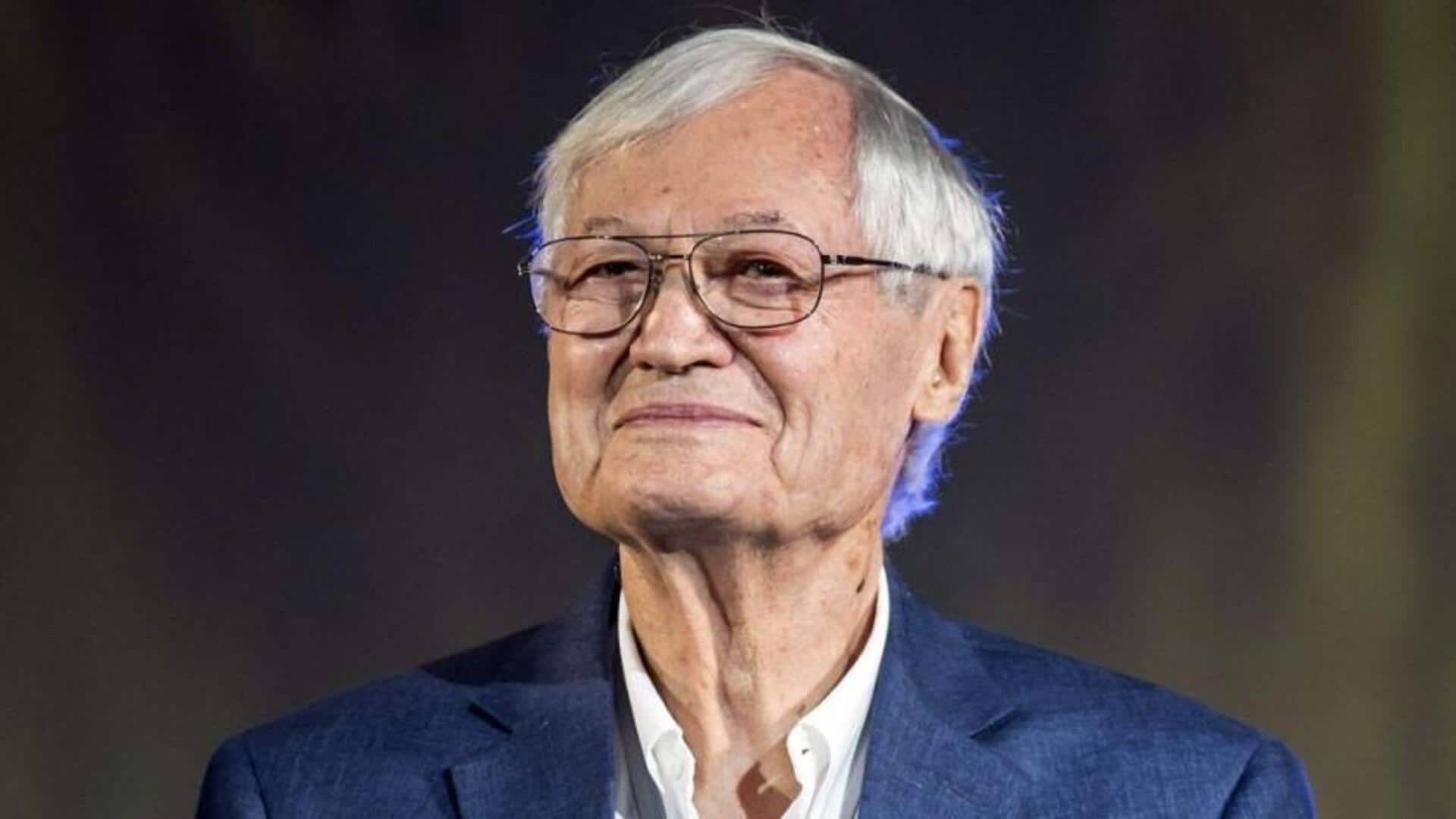
Legendary Roger Corman (98) dies: Remembering pioneer of indie cinema
What's the story
Roger Corman—the iconic independent producer and director—died at his home in Santa Monica on May 9. He was 98. Known as the "king of B-movies," he was surrounded by family members at the time of his death. His family released a statement saying, "When asked how he would like to be remembered, he said, 'I was a filmmaker, just that.'" He is survived by his producer wife Julie Corman, and daughters, Catherine and Mary. No cause of death was given.
Beginnings
Corman's early life and entry into filmmaking
Born in Detroit, Corman moved to Los Angeles with his family in 1940. After serving in WWII, he entered the film business as a messenger at 20th Century Fox. However, feeling unfulfilled, he departed for England to pursue English literature at Oxford for a term. Following this, he moved to Paris, before returning to the US and working as a literary agent. During this time, he recognized the poor quality of many scripts, sparking his interest in writing.
Career
Corman's prolific career and influence on cinema
Determined to try his hand at filmmaking, he penned Highway Dragnet, which he sold to Allied Artists for $4,000, marking the beginning of his astrounding career in cinema. From 1955-60, Corman produced or directed more than 30 films for AIP (American International Pictures)—all budgeted at less than $100K and produced in two weeks or less. His work spanned various genres including Westerns, horror, science fiction, and teen movies. He gained critical recognition with Machine Gun Kelly in 1958.
Legacy
Corman's legacy: Discovering future stars and genre films
Cornan is credited with discovering future industry stars like Jack Nicholson, and Robert De Niro, and directors like Martin Scorsese, and Peter Bogdanovich. In addition to his work in indie films, Corman developed a taste for art cinema starting in 1972 with Bergman's Cries and Whispers. After a hiatus of two decades from directing, he returned to the director's chair for the 1990 film Frankenstein Unbound, which, to the disappointment of genre fans, marked his final directorial effort.
Recognition
Corman's recognition: An Oscar and praise for inclusivity
In November 2009, Corman was honored with an honorary Oscar at the AMPAS's first Governors Awards ceremony. Ron Howard lauded him for hiring women in key executive and creative roles. Walter Moseley noted that Corman offered "one of the few open doors," looking beyond age, race, and gender. Quentin Tarantino toasted him, saying, "The movie lovers of planet Earth thank you." Despite acknowledging the constant compromise between art and business, Corman hailed film as "the only truly modern art form."
Cameos
His autobiography offers insights into his remarkable career
Corman often made cameo appearances in the films of successful filmmakers who launched their careers under his mentorship. His cameos included roles in Philadelphia, Apollo 13, The Godfather: Part II, and Looney Tunes: Back in Action. Despite sometimes receiving disparaging reviews, Corman's films consistently turned a profit, a testament to his ingenuity and understanding of the industry. His autobiography, How I Made a Hundred Movies in Hollywood and Never Lost a Dime—initially published in 1990—offers insights into his remarkable career.